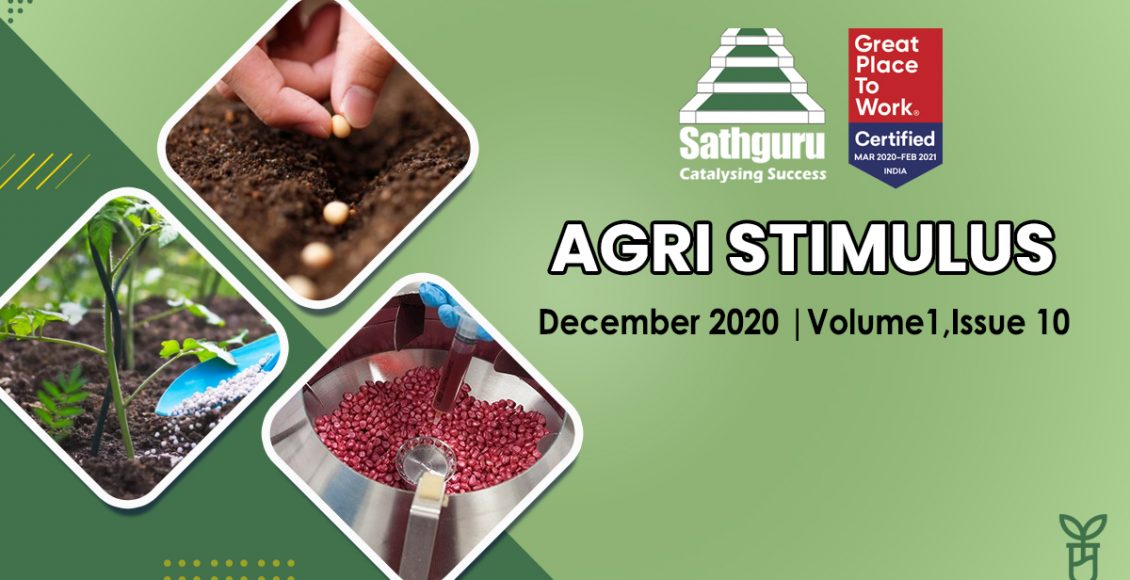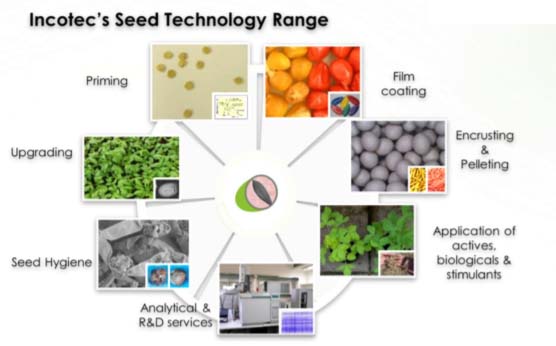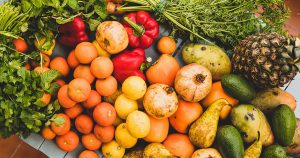
Agri Stimulus Newsletter – December 2020
Recent Advancements & Challenges in Agri Inputs
Cold Plasma – An emerging Seed treatment technology
Challenges and Opportunities for seed companies
Controlled release fertilizer driven sustainable agriculture systems
Seed Enhancement
Seed enhancement is a range of treatments of seeds that improves their performance after  harvesting and conditioned, but before they are sown.
harvesting and conditioned, but before they are sown.
What We Do
Incotec is a seed enhancement specialist. We have been specialising in seed treatment since 1968. The aim is to improve seed quality. We select, protect and improve. We work with seed for field crops and vegetables. Getting the utmost out of seed is what makes us proud. The seed enhancement work we do, contributes significantly to the development of sustainable agriculture. Our solutions support the huge efforts of seed companies, breeders, growers and farmers. Our headquarters are in Enkhuizen in the Netherlands and we have research and production facilities all around the world.
Innovative Technologies
Incotec has various innovative technologies that improve the resilience and performance of seeds. These range from cleaning, upgrading and priming (pre-germination) to pelleting, film coating and encrusting. We have a great deal of knowledge not only in the field of biology and physiology (the seed), but in technique and formulations too. That is what makes us the experts in combining the living seed with different coatings and other products such as plant protection products and nutrients.
About Technologies
In India, we have a huge range of products and technologies - each designed to meet your specific needs. From facilities in India Incotec serves local solutions that help growers get the best out of their crop. How? With bespoke solutions designed to overcome specific challenges and that are following 7 Technology.
7 INCOTEC technologies
- Upgrading: Removing seeds of lower quality raises the overall quality of the seed
 lot using different technology platforms of seed separations.
lot using different technology platforms of seed separations. - Priming: Under controlled conditions germination is triggered and then brought to a standstill at just the right stage. It is known as pregerminated seed technology as well where Seeds after priming are capable to grow in any given unfavorable climatic condition at almost double speed of emergence and doubled Vigor to grow.
- Seed Hygiene: Treatments that reduce or eliminate micro-organisms (e.g. fungi, bacteria) in/on the seed to give birth to healthy seedlings and least mortality.
- Film Coating: Application of a very thin layer of polymer, possibly mixed with an active or additive, with virtually no change in size or weight in order to add real value on each and every seed.
- Encrusting and Pelleting: Adapting the shape of seeds by putting a layer of coating material on it. More uniform shape and size of the seeds to facilitate precision sowing and to increase seed space to add more actives ingredients per seed.
- Actives and Additives: Application of actives and additives integrated in the seed coating. Incotec is expert in applied seed technology to deliver any given molecules / biological etc in precise way to each and every seed without affecting basic seed quality and in most efficient manner.
- Analytical and R&D services: NABL Accredited Seed Testing Service Provider and Provide R&D Services to support customers Seed technological need.
Summary
With an ever-growing population and the yield per seed and per square meter becoming increasingly important, Incotec's products offer the basis for the most efficient and effective way of growing seeds with added value in most sustainable way
Ion Beam breeding technology helps to alleviate varieties of glutinous rice : Ion beam technology promotes molecular breeding by application of ion beam mutagenesis in crops. This technology has been successful applied for the breeding of improved varieties of glutinous rice having early maturity, strong resistance, and high nitrogen fertilizer utilization efficiency. This new technology is now being applied to other crops and varieties including rice, wheat and corn. Read More
6 desi and 4 kabuli varieties of Chickpea released in 2020: In collaboration with National Agricultural Research Systems in Africa and Asia, ICRISAT has released 10 new chickpea varieties which have contributed to 73% of the global chickpea production. Machine harvestable chickpea released in India were larger in size and could be quickly harvested saving the crops from unseasonal rains.
Precision agriculture introduced to farmers for sowing to increase farming efficiency: Under the guidance of Institute of Agricultural Sciences, Banaras Hindu University, farmers from Khutahan village were introduced to usage of drones for sowing. This will enable the farmers to sow in the wet areas where tilling by tractors is difficult. The time for sowing reduced and the precision in sowing increased, increasing the overall efficiency. Read More
Mosaic, BioConsortia collaborate to develop nitrogen-fixing microbial products : Mosaic, a fertiliser company, and BioConsortia have collaborated for the development of nitrogen-fixing microbial products for corn, wheat and other major non-legume row crops. The collaboration aims to develop beneficial microbial products designed to reduce the amount of conventional nitrogen fertilizer application, while increasing crop yields and grower revenue. Read More
Ban on onion export lifted: Trade ban on onions excised in September this year will be now lifted from January 1st as announced by Directorate General of Foreign Trade. In September, due to spurt in its prices and in anticipation of supply crunch the Government had halted trade exercise. Read More
ICAR receives prestigious 'International King Bhumibol World Soil Day Award”: Indian Council of Agricultural Research (ICAR) has received the esteemed global award from the United Nation’s Food and Agriculture Organization (FAO) for raising awareness about importance of soil health among all stakeholders on the occasion of World Soil Day, celebrated on December 5. Read More
Telangana government may stop the practice of regulated cropping system: Telangana government seems to have decided to stop the practice of issuing guidelines on what crops should the farmers grow. The Government’s decision to enforce a regulated cropping system had come in for sharp criticism from the farmers’ unions as such regulations would lead to monocropping and reduce the area of some minor crops. Read More
NCDC and Nabard to help form 8000 FPOs across India: FPOs will be formed and promoted through Cluster Based Business Organizations (CBBOs) engaged at the State/Cluster level by implementing agencies. Adequate training and handholding will be provided to FPOs by the NCDC. Through formation of FPOs, farmers will have better access to quality input, technology, credit and better marketing access. Read More
Click here to Download the PDF version
Authors:





Connect with Authors at: E-mail agribusiness@sathguru.com
 Grow Beyond
Grow Beyond 





